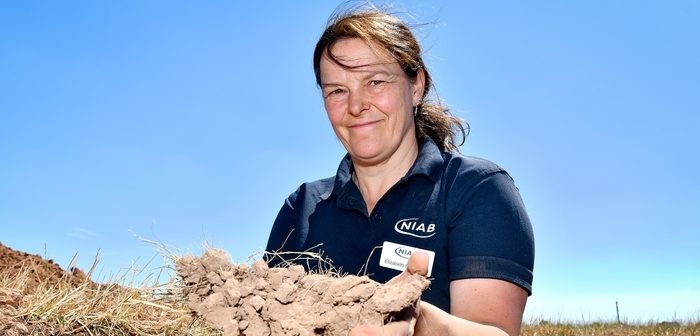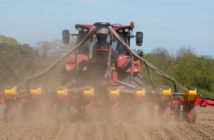The organic sector needs to change the way it engages with farmers, consumers and policy makers if the huge opportunities offered by the sector are to be taken more seriously.
Roger Kerr, chief executive of organic licensing body OF&G, said organic farming offered major potential to businesses post-Brexit, as well as significant opportunities for ecological innovation.
But too many years of comparing and criticising other production systems meant the sector had not received the positive attention it deserved – something producers and organic businesses had to change.
Speaking at OF&G’s National Organic Combinable Crops conference in Shifnal, Shropshire on Tuesday (3 July), Mr Kerr said organic’s ability to deliver environmental and public goods should put the sector ‘at the heart of the mix’ of post-Brexit farming policy discussions.
“Part of that is because organic has become a loaded word,” he said. “We need to change things. We need to start engaging, sharing, and change the record if organic is to be part of the UK’s domestic agricultural policy.
“We need to talk about organic differently and show that it’s good for business and delivers on productivity. We need to talk about its opportunity to deliver on cashflow and product integrity.
“We also need to talk about ecological innovation alongside technical innovation, which is an area we haven’t really started to mine as far as government is concerned,” he told delegates. “We need to place organic in the centre of that to help drive that innovation.”
Now in its 11th year, NOCC has become a vital part of the organic farming calendar, bringing together over 200 people from across food and farming, including organic and non-organic farmers, processors, retailers, academics and plant breeders.
Speakers at this year’s event included Australian soil scientist Joel Williams and NIAB’s head of farming systems Liz Stockdale, who offered practical advice to delegates on improving soil health and structure.
Regardless of systems, both speakers stressed the importance of farmers really getting to know their soil health by spending more time handling and observing.
“Scientists don’t know everything about soils and neither do farmers,” Dr Stockdale said. “Knowing your textures and the way soil works matters. We need to get out of our tractors and look at what we are dealing with.”
“I have seen as good soils in organic as in no-til systems,” she said. “I often take students to visit farms doing conservation agriculture and organic ones and see that the soil health is good in both, even though they are doing very different things.”
Meanwhile Mr Williams talked about the potential for building resilience into all farming systems by diversifying crops. He said studies had shown that diversity within a single crop increases yields, helps fix nitrogen, and increases fungal activity which protects carbon.
“Different plants scavenge different parts of the soil, improving structure and making use of other microbes,” he added. “Understanding plant diversity and learning which plants work together on your farm is important.”




